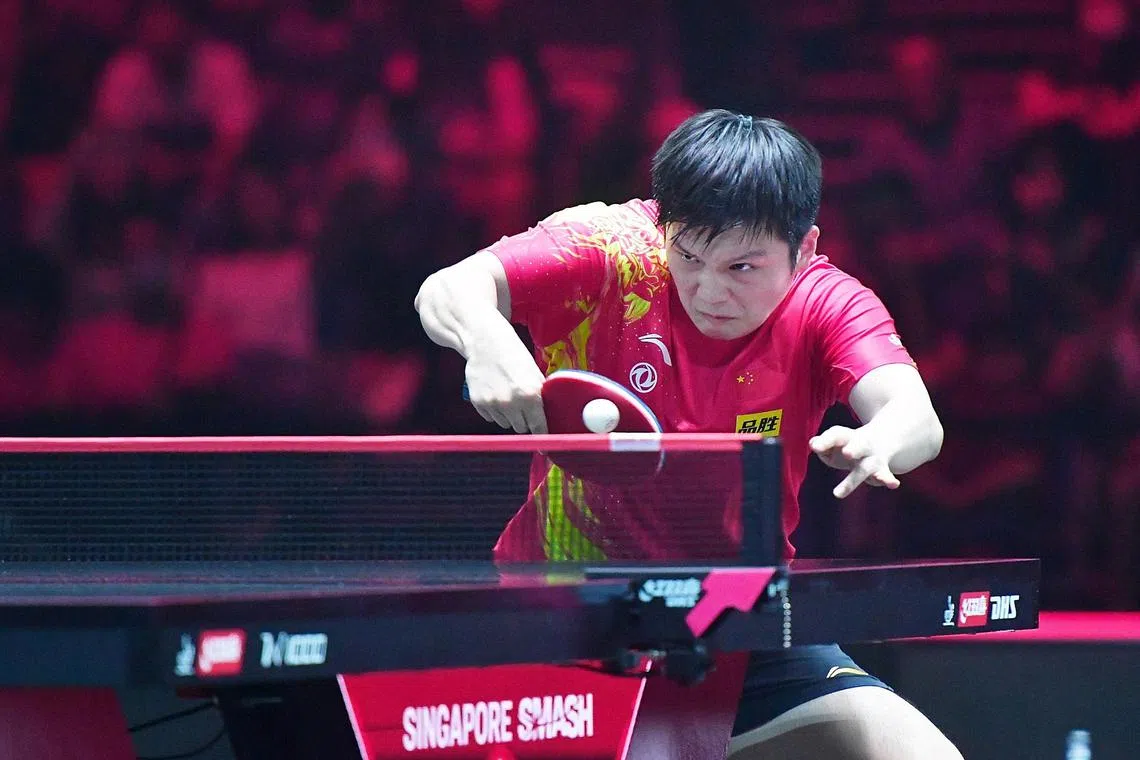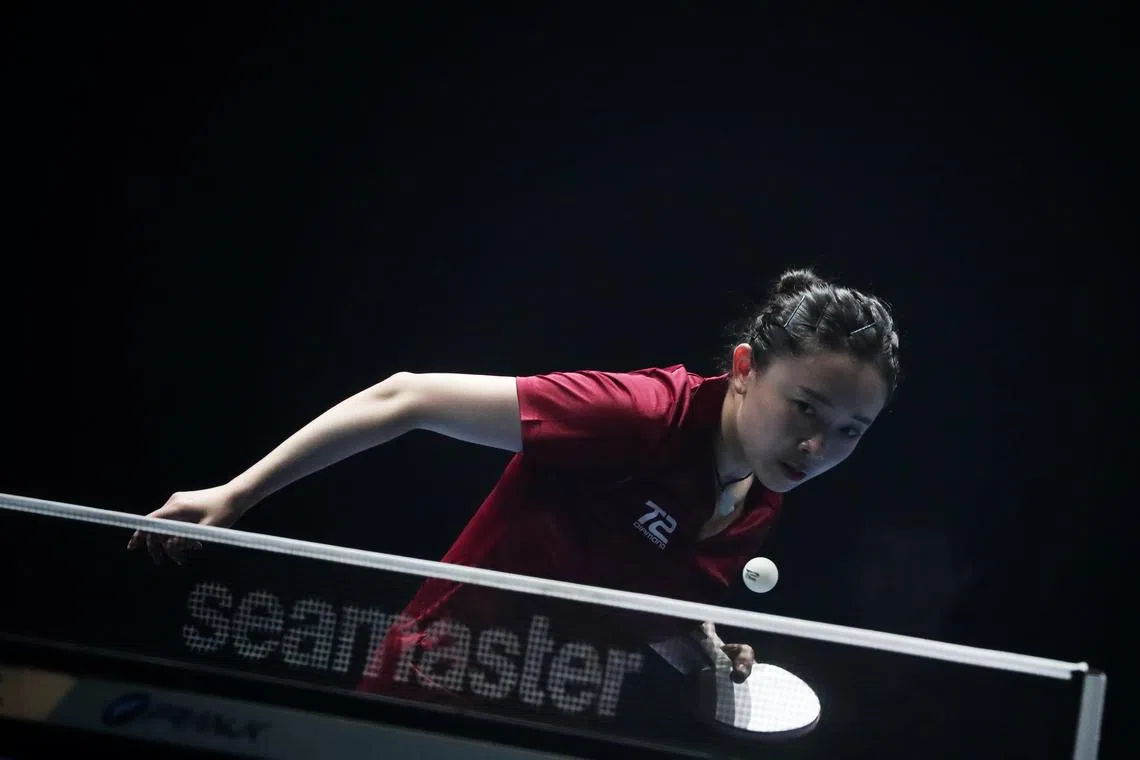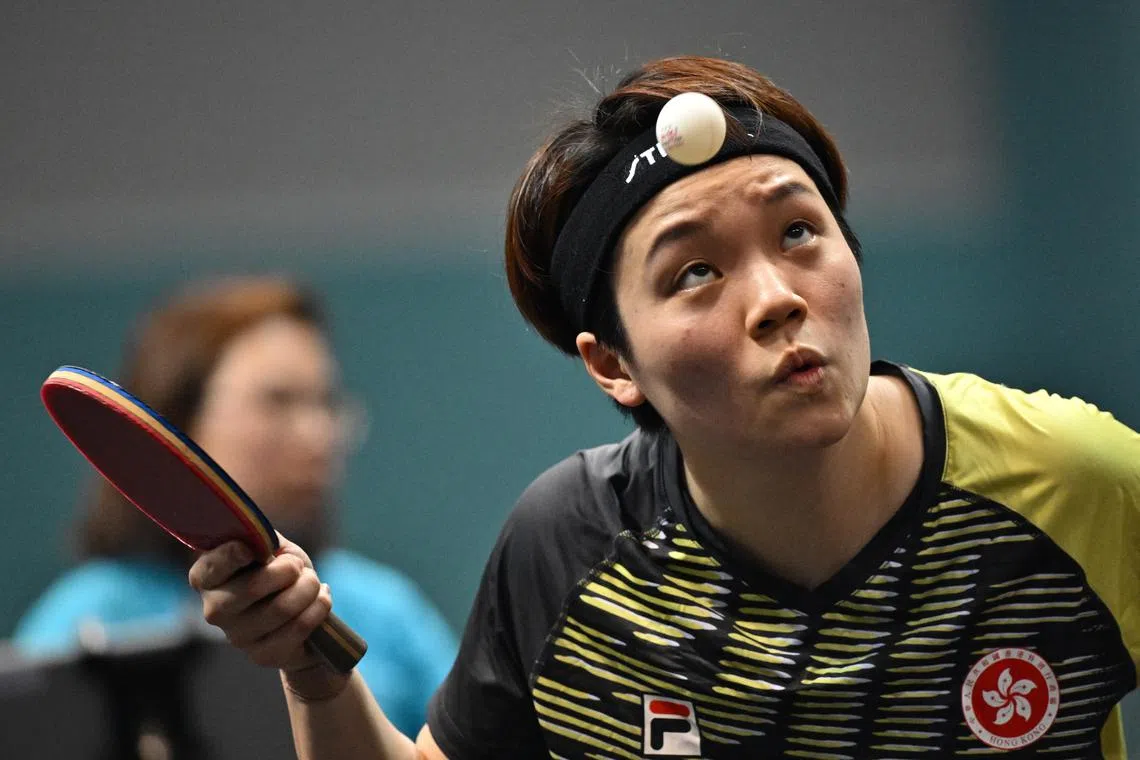Table tennis: Mental fortitude behind China’s dominance
Sign up now: Get the biggest sports news in your inbox

China's Fan Zhendong fighting his way to win over Sweden's Anton Kallberg at the World Table Tennis Singapore Smash on Saturday.
ST PHOTO: DESMOND WEE
SINGAPORE – South Korean Jeon Ji-hee has played 749 matches since she made her debut at 19 on the International Table Tennis Federation World Tour (then known as the Pro Tour) in 2011, winning four singles titles along the way.
Yet, she deems a loss as one of her most memorable moments. In the mixed doubles quarter-finals of the 2019 World Championships in Budapest, Jeon and partner Lee Sang-su took Chinese stars Xu Xin and Liu Shiwen to the wire.
The South Koreans led 2-0 and later 3-2, before falling 4-3 (10-12, 9-11, 11-7, 11-9, 9-11, 11-5, 11-7) to the eventual champions.
Jeon, 30, told The Straits Times: “Both opponents are great players. To be able to put up a fight against them on such a big stage showcases the beauty of sport.”

Jeon Ji-hee’s unforgettable match is a mixed doubles loss to China’s Liu Shiwen and Xu Xin in the 2019 world championships quarter-finals.
ST PHOTO: KELVIN CHNG
That Jeon’s most memorable match is a loss to a Chinese pair speaks volumes of the effect Chinese players have on their opponents. The powerhouses have dominated for 30 years.
All the Olympic women’s singles champions have been from China, while the men have won six out of nine times since the sport was introduced at the 1988 Seoul Games.
At the biennial world championships, China have won all but two men’s singles titles since 1995, while the women’s singles finals have been an all-Chinese affair since that year.
The top three men’s players are Chinese, though others like former world No. 3 Hugo Calderano (Brazil), Tomokazu Harimoto (Japan) and Truls Moregardh (Sweden) are in the mix.
The top four women’s singles players are also from China, with a total of five Chinese in the top 10.
Others noted that while more players from other countries are improving rapidly, they expect China’s stranglehold on the sport to continue, with the May 20-28 World Table Tennis Championships in Durban and 2024 Paris Olympics on the horizon.
Like Jeon, Doo Hoi Kem’s most unforgettable match was also against a Chinese player: Beating Liu 4-2 in the 2016 ITTF Asian Olympic qualification tournament in Hong Kong.
It is the Hong Konger’s sole victory against a Chinese world No. 1 player on the senior circuit.

Hong Kong’s Doo Hoi Kem hopes to win a singles medal at the world championships or Olympics.
ST PHOTO: LIM YAOHUI
On why it is so hard to beat them, the 26-year-old said: “They’re among the best in their technical skills and ability. Their teamwork is strong and they have a huge talent pool.
“They never rest on their laurels or are arrogant about their achievements and they’re always looking to improve.”
Former men’s world No. 1 Dimitrij Ovtcharov highlighted that the Chinese do not have a lot of weaknesses, saying: “You need to train a lot and study them a lot... but the most important thing is that you believe you can win.”
But the Singapore Smash 2023 singles defending champions Fan Zhendong and Chen Meng reckon other teams are getting stronger, so they too have to adjust accordingly.
Fan, 26, said: “To us, we approach every match cautiously. Ultimately, many different factors contribute to the results, everyone’s standards are very similar and the ranks are always fluctuating.
“Personally, I don’t think I have that much of an advantage.”
Jeon, however, believes otherwise. “They have too many advantages... You need a bit of luck to beat them. They’re not just one individual player, they’re a powerful unit that has been built for several decades,” she said.
She added that the Chinese have a mental fortitude that helps them edge ahead in key moments.
“To win against such a dominating team would take a lot of complex planning and training. To me, it seems like a very difficult thing to achieve,” said Jeon.


